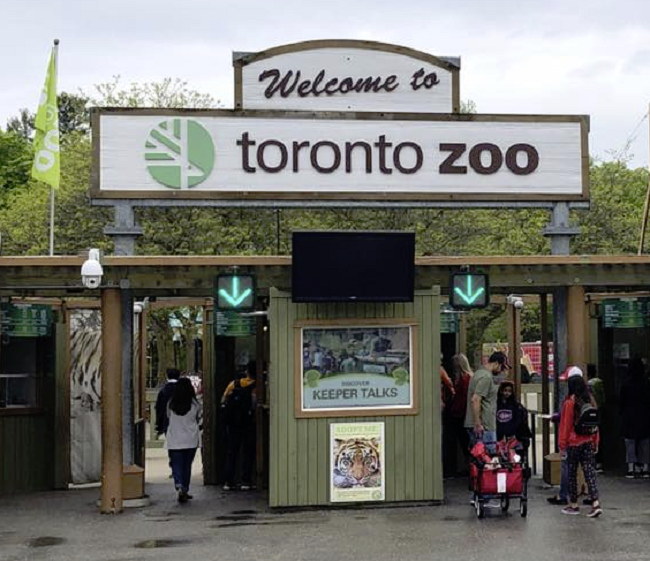The Toronto Zoo says it has begun administering COVID-19 vaccines to its most susceptible animals.

In a press release issued Thursday, the zoo said it has received COVID-19 vaccines for animals developed and donated by Zoetis.
According to the zoo, it has received 320 doses of the vaccine. Each animal will need two doses, administered two-to-three weeks apart.
The zoo said it has 120 animals that have already or will soon receive a vaccine, “based on the COVID-19 sensitivity list that has been developed through on-going research and reports of positive cases in other zoos.”

Get breaking National news
The release said zoos in the U.S. have been vaccinating their animals since 2021, adding that “to date there have been no significant adverse effects reported.”
According to Dolf DeJong, CEO, Toronto Zoo, the zoo has not seen any positive cases of the virus within it’s animals during the pandemic.
“Being able to add this extra layer of protection allows us to continue doing everything we can to provide them with the highest level of protection and medical care,” DeJong said.
According to the zoo, animals are given the choice if they want a vaccine or not.
The zoo said animals undergo “positive reinforcement training” adding that many animals “willingly present an area of the body (such as an arm or tail) as part of their training exercises with their trusted keepers, with desirable treats often used as a reward for their participation.”
The zoo said the training sessions are voluntary.
The zoo said the training allows the animals to participate in other things like X-rays, blood draws, hoof trimming, which “allow the keepers and veterinary team to monitor their health regularly” without “causing the animals any undue stress.”
- ‘Shocked’: Burlington pawn shop owner describes brazen smash-and-grab robbery
- Peel school board supervision a ‘smokescreen’ for underfunding, chair says
- Ontario PCs reverse course on media ban, will let reporters cover Doug Ford convention speech
- Ontario man who pleaded guilty to terrorism charges seeks lighter sentence








Comments